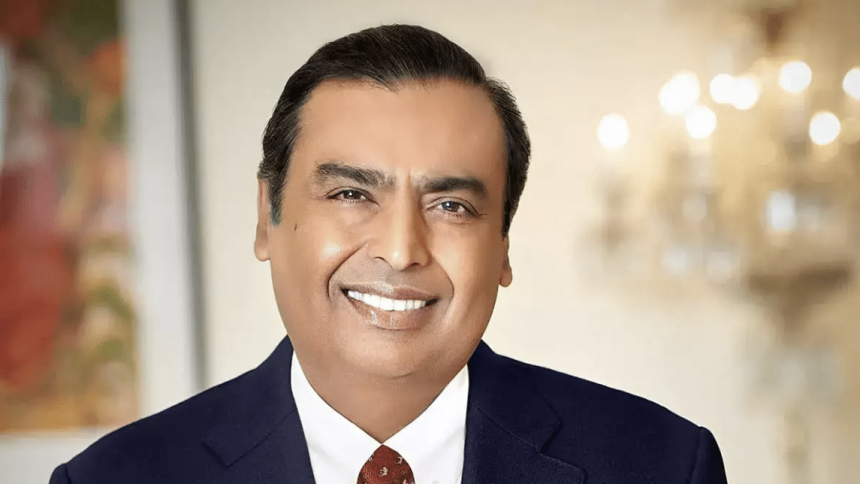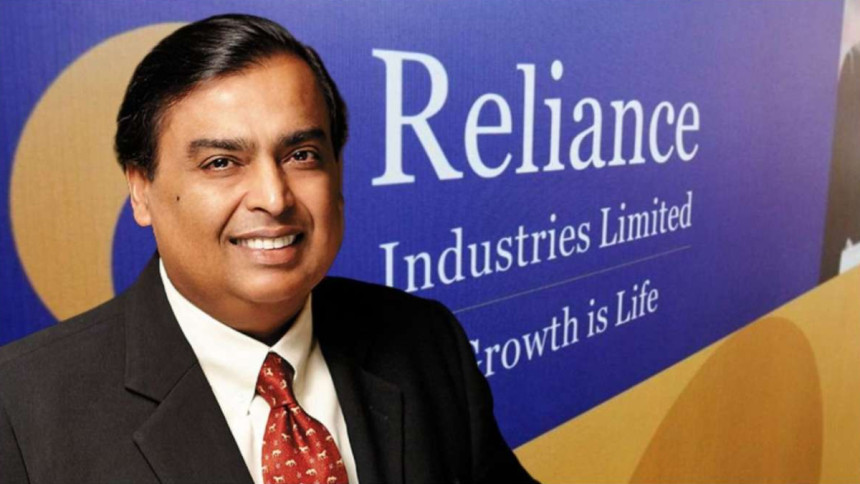
Mukesh Ambani Net Worth and Success Story
Mukesh Dhirubhai Ambani was born on April 19, 1957, in Aden, Yemen, where his father, Dhirubhai Ambani, worked as a gas station attendant before moving back to India to start his own business. Dhirubhai founded Reliance Commercial Corporation, which initially focused on trading textiles and spices. The family moved to Mumbai, where Mukesh was raised with his siblings in a modest two-bedroom apartment. Mukesh showed an early interest in business and engineering. He attended the Hill Grange High School in Mumbai and later completed his high school education at St. Xavier's College. He pursued chemical engineering at the Institute of Chemical Technology (UDCT) in Matunga. In 1979, he enrolled in the MBA program at Stanford University but left after a year to help his father build the family's nascent business empire.
Early Involvement in Reliance Industries
Returning to India in 1980, Mukesh joined his father in expanding Reliance Industries, then a small but rapidly growing company. Dhirubhai Ambani envisioned creating a fully integrated, world-class textile manufacturer. Mukesh was instrumental in realizing this vision by spearheading the construction of a polyester filament yarn (PFY) manufacturing plant.
Mukesh's technical knowledge and hands-on approach were critical in the establishment of this plant, which became operational in 1981. This project marked the beginning of Reliance's transformation from a textile trader to an industrial giant, capable of competing on a global scale.
Expanding the Business: Petrochemicals and Refining
In the 1980s and 1990s, Mukesh Ambani played a pivotal role in diversifying Reliance Industries into petrochemicals and refining. Under his leadership, the company established one of the world's largest and most sophisticated refinery complexes in Jamnagar, Gujarat.
Jamnagar RefineryThe Jamnagar refinery, which commenced operations in 1999, was a game-changer for Reliance and the Indian economy. It significantly boosted India's refining capacity and positioned Reliance as a major player in the global energy market. The refinery's success was attributed to Mukesh's strategic vision and his ability to execute large-scale projects efficiently.
The facility was later expanded, making it the largest refining complex in the world. This move not only enhanced Reliance's production capacity but also allowed the company to capitalize on economies of scale and become a dominant force in the global petrochemical industry.
Telecommunications and Retail: Entering New Frontiers
In the early 2000s, Mukesh Ambani recognized the potential of India's burgeoning telecommunications and retail sectors. He led Reliance into these new industries, further diversifying the company's portfolio and driving growth.
Reliance InfocommIn 2002, Mukesh launched Reliance Infocomm (later rebranded as Reliance Communications), aiming to revolutionize India's telecom landscape. The company introduced affordable mobile services, drastically reducing the cost of telecommunications and making it accessible to millions of Indians. Reliance Infocomm's aggressive pricing and widespread network expansion played a crucial role in India's mobile revolution.
Despite initial success, Mukesh's foray into telecommunications was marred by a high-profile split with his younger brother, Anil Ambani, in 2005. The division of the family's assets saw Reliance Communications go to Anil, while Mukesh retained control over Reliance Industries' core petrochemical and refining businesses.
Reliance RetailUndeterred by the split, Mukesh continued to explore new opportunities. In 2006, he launched Reliance Retail, which aimed to transform India's retail landscape by offering consumers a wide range of products at competitive prices. The venture quickly grew to become India's largest retailer, with a diverse portfolio that includes grocery stores, electronics, fashion, and lifestyle outlets.
The Birth of Reliance Jio
One of Mukesh Ambani's most ambitious and transformative ventures was the creation of Reliance Jio. Launched in 2016, Jio aimed to provide high-speed 4G internet services at an affordable price, disrupting India's telecommunications market once again.
Disrupting the MarketReliance Jio offered free voice calls and extremely low-cost data plans, which forced competitors to lower their prices and improve their services. Jio's aggressive pricing strategy led to a dramatic increase in internet penetration across India, empowering millions of people with access to digital services.
Within a few months of its launch, Jio had acquired over 100 million subscribers, a testament to Mukesh Ambani's vision and strategic execution. The company's success was driven by its extensive 4G network, state-of-the-art infrastructure, and innovative marketing campaigns.
Building a Digital EcosystemMukesh's vision for Jio extended beyond telecommunications. He aimed to create a comprehensive digital ecosystem that encompassed a wide range of services, including digital payments, entertainment, e-commerce, and cloud computing. Jio's suite of apps, such as JioTV, JioCinema, and JioSaavn, provided users with a seamless digital experience, further enhancing the company's value proposition.
Strategic Partnerships and Investments
Recognizing the potential of Jio's digital ecosystem, several global technology giants and investment firms invested in the company. In 2020, Jio Platforms raised over $20 billion by selling stakes to companies like Facebook, Google, and various private equity firms. These investments not only validated Jio's business model but also provided the company with additional resources to accelerate its growth and innovation.
Leadership and Vision
Mukesh Ambani's leadership style is characterized by his strategic foresight, hands-on approach, and relentless pursuit of excellence. He is known for his ability to envision and execute large-scale projects, often ahead of market trends. His willingness to take calculated risks and invest in new technologies has driven Reliance Industries' continuous growth and diversification.
Philanthropy and Social Impact
Beyond business, Mukesh Ambani is deeply committed to philanthropy and social development. The Reliance Foundation, led by his wife Nita Ambani, focuses on various initiatives aimed at improving healthcare, education, rural development, and urban renewal.
HealthcareThe foundation has made significant contributions to India's healthcare sector, including the establishment of the Sir H.N. Reliance Foundation Hospital and Research Centre in Mumbai. This state-of-the-art facility provides high-quality medical care to people from all walks of life, regardless of their ability to pay.
EducationIn education, the foundation has launched numerous initiatives to enhance access to quality education, particularly in rural and underserved communities. Programs such as Dhirubhai Ambani Scholarship Program and various digital education initiatives have benefited thousands of students across India.
Rural DevelopmentThe foundation's rural development initiatives focus on improving the livelihoods of farmers and rural communities. Through various programs aimed at enhancing agricultural productivity, water conservation, and skill development, the foundation has helped uplift countless families in rural India.

Personal Life and Wealth
Mukesh Ambani's personal life is closely intertwined with his professional endeavors. He is married to Nita Ambani, who is also actively involved in the family's business and philanthropic activities. The couple has three children: Akash, Isha, and Anant, all of whom have taken on roles within Reliance Industries.
Net WorthAs of 2024, Mukesh Ambani's net worth is estimated to be around $95 billion, making him one of the richest individuals in the world. His wealth is primarily derived from his substantial holdings in Reliance Industries, which continues to be a powerhouse in the global energy, telecommunications, and retail sectors.
Future Vision and Innovations
Mukesh Ambani's vision for the future of Reliance Industries is centered on innovation and sustainability. He has outlined ambitious plans to transform the company into a global leader in renewable energy and digital services.
Renewable EnergyReliance is investing heavily in renewable energy, with plans to establish large-scale solar and hydrogen projects. Mukesh envisions Reliance playing a key role in India's transition to clean energy, reducing the country's dependence on fossil fuels and contributing to global efforts to combat climate change.
Digital TransformationBuilding on the success of Jio, Mukesh aims to expand Reliance's digital ecosystem by leveraging emerging technologies such as artificial intelligence, blockchain, and the Internet of Things (IoT). These initiatives are expected to drive innovation across various sectors, including healthcare, education, agriculture, and smart cities.
Legacy and Impact
Mukesh Ambani's journey from a young entrepreneur to one of the world's wealthiest and most influential business leaders is a testament to his vision, determination, and leadership. His ability to transform Reliance Industries into a diversified conglomerate with a global footprint has had a profound impact on India's economy and society.
Mukesh's legacy extends beyond business; his philanthropic efforts and commitment to social development have improved the lives of millions of people across India. As he continues to drive innovation and address global challenges, Mukesh Ambani's influence and contributions will undoubtedly leave a lasting mark on the world.
Conclusion
Mukesh Ambani's success story is a remarkable example of how vision, strategic thinking, and relentless execution can transform a small business into a global powerhouse. His journey is marked by groundbreaking achievements in industries ranging from petrochemicals and refining to telecommunications and retail. Through his leadership, Reliance Industries has become a symbol of India's economic prowess and technological innovation.
As Mukesh Ambani continues to explore new frontiers and drive sustainable growth, his story serves as an inspiration to entrepreneurs, business leaders, and aspiring innovators worldwide. His commitment to philanthropy and social impact further underscores the importance of using wealth and influence to create positive change in society.





